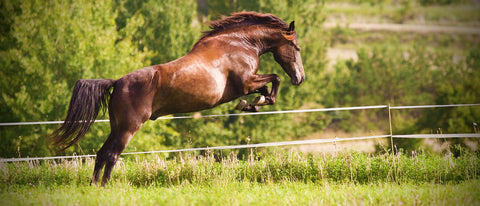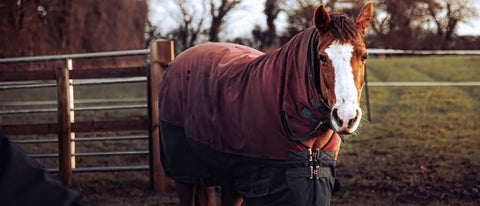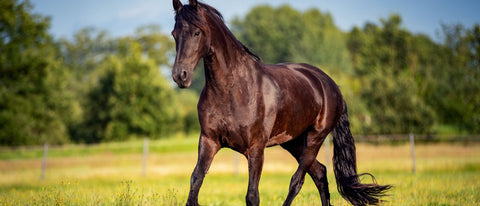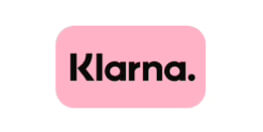
Florian ist aufgewachsen auf einem Bauernhof. Umgeben von Pferden, entdeckte er früh seine Faszination für diese majestätischen Tiere. Inspiriert von seiner reitbegeisterten Mutter, entwickelte er das Nahrungsergänzungmittel - Pferdegold. Seine tiefe Verbundenheit zur Natur und die leidenschaftliche Hingabe zu Pferden trieben ihn an, sein Unternehmen zu gründen.
Imagine your horse is particularly lively today, romping around the paddock full of energy. An optimal supply of B vitamins could play a key role.
In this guide, we explore the diverse functions of vitamin B complex for horses.
These essential nutrients are crucial for metabolism, the nervous system, and energy production. We explain how B vitamins support balance in your horse's body and provide insights into how to identify and avoid deficiencies.
We will look at the individual B vitamins and explain their specific functions and benefits.
We also give you valuable tips on how you can ensure your horse receives these essential nutrients through proper feeding.
Understand why each of the different B vitamins contributes to your horse's health and well-being and how you can maintain a balanced vitamin level in your horse.

The role of vitamin B1 (thiamine) in horse nutrition
Vitamin B1, also known as thiamine , should be a vital nutrient in every horse's diet.
Vitamin B1 plays a crucial role in energy production in horses and is essential for the functioning of the nervous system.
It supports carbohydrate metabolism and contributes to muscle health . A sufficient supply of vitamin B1 is therefore essential for the performance and well-being of horses.
What happens if a horse has a vitamin B1 deficiency?
-
Poor feed intake: A vitamin B1 deficiency often manifests itself in reduced feed intake and poor energy utilization.
-
Irritability and cramps: Nervous disorders such as increased irritability and cramps can indicate a vitamin B1 deficiency.
-
Heart problems: Disorders of heart function, such as slow heart rate and heart muscle damage, can be caused by a vitamin B1 deficiency.
-
Inflammation: Inflammatory reactions can also be a symptom of vitamin B1 deficiency.
-
Growth depression: Young horses in particular can suffer from growth depression and weakness.
- Colic: Recurring mild colic can also be a sign of a vitamin B1 deficiency.

Perfect for your horse: Pferdegold® supplementary feed!
These specially developed supplements support your horse's diet and provide it with natural nutrients. Made in Germany, grain-free and drug-free, they come with a 30-day money-back guarantee.
Try it now!Why is vitamin B2 essential for horses?
Vitamin B2, also known as riboflavin , is essential for horses. It supports basic bodily functions and is crucial for energy metabolism .
As a central component of the action of B vitamins, vitamin B2 contributes significantly to the health of skin, eyes and mucous membranes .
It is also necessary for iron utilization and red blood cell production .
An adequate supply of vitamin B1 and vitamin B2 is therefore essential to maintain various body functions and promote the horse's general well-being.
What happens if a horse has a vitamin B2 deficiency?
-
Poor feed utilization and growth disorders: A vitamin B2 deficiency can result in poor feed utilization and growth delays.
-
Skin and mucous membrane problems: Problems with the skin and mucous membranes, including inflammatory skin changes.
-
Eye diseases: Impaired eye health may indicate a vitamin B2 deficiency.
-
Loss of energy and reduced performance: Horses with vitamin B2 deficiency often show reduced energy and performance.
-
Immune system disorders: A deficiency can weaken the immune system and increase susceptibility to disease.
-
Disorders of cell metabolism: A vitamin B2 deficiency can lead to disorders of cell metabolism.
-
Diarrhea: Diarrhea can also be a symptom of vitamin B2 deficiency.
-
Neurological disorders: Neurological problems can also indicate a vitamin B2 deficiency.

The health benefits of vitamin B3
Vitamin B3, also known as niacin , is an essential vitamin present in every living cell of the horse.
It plays an important role in the absorption of fats, carbohydrates and proteins in the intestine and supports energy metabolism .
Niacin also has antioxidant properties and promotes nervous system function . It is partially synthesized in the liver and kidneys from the amino acid tryptophan.
What happens if a horse has a vitamin B3 deficiency?
-
Skin problems: A deficiency can cause skin problems such as eczema.
-
Indigestion: Symptoms may include diarrhea or loss of appetite.
-
Weakness and lack of energy: General weakness and lack of energy are common symptoms.
-
Nerve dysfunction: Impairments in the nervous system can lead to behavioral changes.
- Metabolic problems: A deficiency can impair metabolism, resulting in reduced performance.
Everything you need to know about vitamin B5 for horses!
Vitamin B5, also known as pantothenic acid , is an essential component in the immune metabolism of horses.
It plays a central role in the formation of coenzyme A, a key molecule for the synthesis and breakdown of carbohydrates, fats and amino acids .
The importance of vitamin B5 for horses extends across various metabolic processes .
A deficiency in this vitamin can have far-reaching consequences, as it is often accompanied by a deficiency in other B vitamins.
What happens if a horse has a vitamin B5 deficiency?
-
Decreased performance: Horses with a vitamin B5 deficiency can show a noticeable decrease in performance.
-
Weak immune system: A deficiency can lead to a weakened immune system, which increases susceptibility to various diseases.
- Metabolic disorders: Due to its role in metabolism, deficiencies can affect the horse's entire metabolism.
Everything you need to know about vitamin B6 in horse health!
Vitamin B6, also known as pyridoxine , is an essential vitamin in horse nutrition.
It plays a central role in amino acid metabolism and supports protein metabolism as well as the breakdown and synthesis of amino acids.
In horses, vitamin B6 is also involved in carbohydrate metabolism . Incidentally, the need for vitamin B6 increases with protein intake.
Vitamin B6 deficiency is rare in horses, but can lead to various health problems.

What happens if a horse has a vitamin B6 deficiency?
-
Restricted growth and development: Horses with a vitamin B6 deficiency can show significant developmental delays.
-
Skin problems and damage to internal organs: A deficiency can lead to skin inflammation as well as damage to the liver and heart.
-
Weakness in the immune system: The development of important immune organs such as the thymus, spleen and lymph nodes can be inhibited, which impairs the immune system.
-
Nervous system disorders: Symptoms may include disorders of the central and peripheral nervous system, such as convulsions or movement disorders.
-
Problems with food intake: Reduced feed intake and poor protein production are further signs.
- Deficiency of important minerals: A vitamin B6 deficiency can also lead to a deficiency of selenium, manganese or zinc.
Function and necessity of folic acid for horses
Folic acid, also known as vitamin B9, is particularly important for the growth and development of foals.
Horses usually get enough folic acid through species-appropriate feeding with green fodder, such as pasture grass, which is rich in this vitamin.
Folic acid plays a crucial role in early embryonic development.
Inadequate intake or problems with intestinal synthesis, particularly in horses that are kept predominantly in stables and have to perform at a high level, can lead to deficiencies.
What happens if a horse has a vitamin B9 deficiency?
-
Poor performance: Horses may show a general weakness in their performance.
-
Anemia: A deficiency in folic acid can lead to anemia.
-
Development problems in foals: In pregnant mares, a deficiency can impair the development of the foal.
- Health problems: Horses that do not have access to sufficient green forage can develop health problems.
Why horses need vitamin B12
Vitamin B12, also called cobalamin , is essential for horses and is synthesized in the horse's intestine with the help of cobalt if the intestinal flora is healthy.
It influences amino acid synthesis, blood formation, and growth. Cobalt is an important cofactor for the production of vitamin B12.
This vitamin plays a central role in cell division, especially in cell-rich tissues such as the intestinal mucosa and nerve tissue .
A healthy intestinal flora is crucial for sufficient vitamin B12.

What happens if a horse has a vitamin B12 deficiency?
-
Poor blood formation and growth disorders: A deficiency leads to anemia and can impair growth.
-
Impairment of nerve function: Neurological problems such as coordination difficulties may occur.
-
Weakened immune system: Vitamin B12 deficiency can weaken the immune system.
-
Skin inflammation: Deficiencies can manifest as skin problems.
-
Reduced protein production: This can affect the horse's health and development.
-
Poor feed utilization: Horses with vitamin B12 deficiency may not utilize food efficiently.
- Rough coat: A deficiency can also be seen in the appearance of the coat.
What is the recommended daily dose for horses?
The recommended daily dose of vitamins for horses depends on various factors, including
- Size,
- Age,
- Activity level and
- Health status of the horse.
It is important to adjust feeding individually to avoid both deficiencies and overdoses.
A balanced diet containing all the necessary vitamins and nutrients is crucial for the horse's health and well-being.
Overdose: Symptoms & consequences at a glance
An overdose of B vitamins in horses is rare but possible.
Symptoms of a vitamin B overdose can vary and range from digestive upset to serious health problems.
It is important to know that an overdose of some B vitamins can occur, especially with uncontrolled supplementation.
An individual dosage should therefore ideally be agreed upon with a veterinarian or a specialist in horse nutrition.
Signs of an overdose include behavioral changes, skin reactions, and other metabolic problems.
If an overdose is suspected, a veterinarian should be consulted immediately to minimize possible health consequences.

Pferdegold® supplementary feed!
Pferdegold is a small family business from Bavaria with a big dream: to produce the best horse feed. We see ourselves as a family of equestrians who want to provide your horse with the ideal nutrition. 100% natural and perfectly tailored to your horse's needs.
Try it now!How do horses store vitamins?
Horses store vitamins differently, depending on their solubility. B vitamins are water-soluble and are not stored long-term; instead, they must be regularly ingested through food.
The horse's body can only store these vitamins to a limited extent, so a continuous supply through your horse's diet is important.
How does poor feed quality affect vitamin B synthesis?
Poor feed quality can negatively affect the synthesis and absorption of B vitamins in horses.
Poor food sources often cannot provide enough essential nutrients, which can lead to a deficiency in B vitamins.
An unbalanced diet can impair intestinal health, which is essential for the synthesis of some B vitamins.
Consequently, poor feed quality can negatively impact the horse's overall health and well-being.
Why is activation so important for the availability of B vitamins?
The activation of B vitamins in the horse's body is crucial for their availability and effectiveness. Many B vitamins, such as B6 or folic acid , must be converted into active forms to be used effectively. This conversion occurs through specific enzymes and coenzymes.
Without this activation, B vitamins cannot be properly metabolized, which impairs their effectiveness.
Good intestinal health and sufficient coenzymes are therefore essential for the effective use of B vitamins in the horse's body.

Conclusion
Even if horse owners don't constantly worry about their faithful companion's vitamin intake in their daily lives, the importance of B vitamins in our horses' lives cannot be overstated. They are essential for development, health, and performance.
A well-planned diet that incorporates these vitamins can be the key to success. However, it's not just about the quantity, but also the quality of the nutrients.
Careful selection and composition of feed ingredients are therefore crucial. Ultimately, the goal is to have a healthy and content horse and to spend many exciting adventures and valuable time together. At Pferdegold, we make every effort every day to ensure our products provide your horse with the best possible nutritional support.
FAQ
What role does vitamin B play in stress management in horses?
Vitamin B can be crucial for stress management in horses because it supports the nervous system.
It can be helpful to mitigate reactions to stress, which is especially important in demanding situations such as competitions or transportation.
An adequate supply of vitamin B therefore often contributes to the animals' resistance to stress and general well-being, which shows how essential a balanced diet can be for the mental and physical health of horses.
How do B vitamins affect the coat quality of horses?
B vitamins, especially biotin, play an important role in the quality of a horse's coat. A balanced vitamin B complex can promote a shiny, healthy coat by supporting metabolism.
Deficiencies can often manifest as dull, weak coats. Therefore, it's important to provide a varied diet to meet these essential nutrients and maintain coat quality.
Can an overdose of B vitamins cause health problems in horses?
An overdose of B vitamins in horses, although rare, can lead to health problems. Because B vitamins are water-soluble, excesses are usually excreted, but extreme overdose can cause imbalances.
It is therefore advisable to always follow the feeding instructions on the packaging and exercise caution when supplementing. If unsure, professional advice may be helpful to minimize the risk of side effects.
Learn more about horse health and read the next guides!
- Feeding horses optimally and naturally » That 's what matters!
- Vitamin D for horses: Everything you need to know!
- Strengthen your horse's immune system : These tips will help!
- Vitamin E in horses » Everything you should know!

















